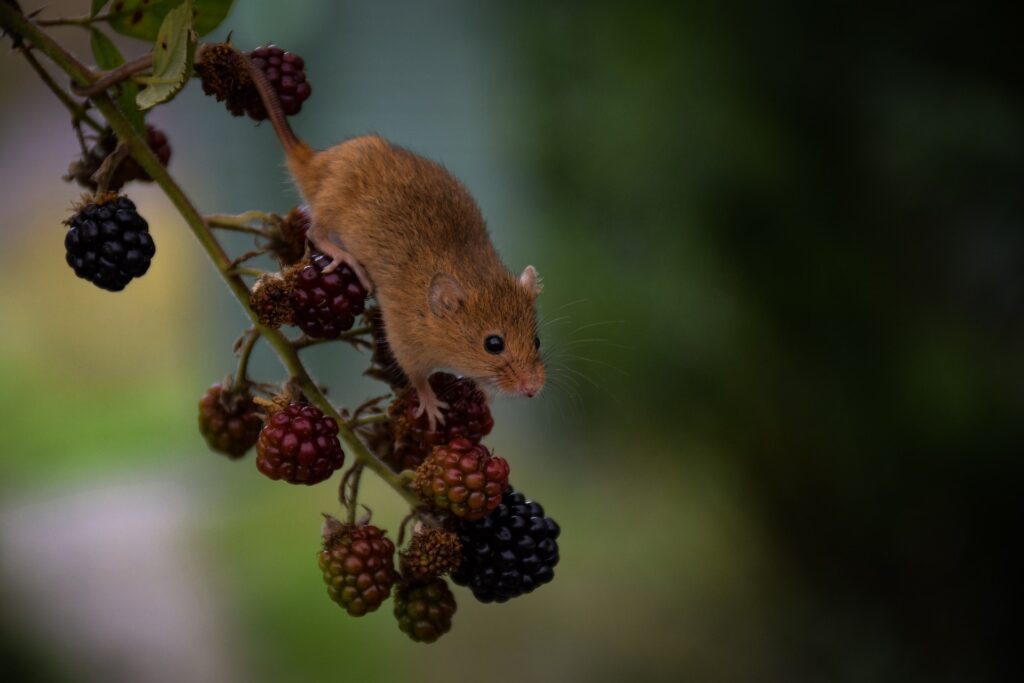Discovering how to get rid of mice with vinegar can be a game-changer for homeowners. Vinegar is a powerful substance known for its robust cleaning solution properties, and it can also help in pest removal. While spraying vinegar in areas where mice frequent may serve as a short-term solution, it’s crucial to eliminate food sources to prevent mice coming back. Keep in mind that vinegar repels mice, but persistent infestations might require more comprehensive measures.
Understanding the Power of Vinegar Against Mice
Vinegar repels mice through its strong scent, making it a valuable tool in the fight against a mouse infestation. However, if the problem persists, it’s advisable to use vinegar to repel mice as part of a broader strategy, possibly involving a professional pest control company for a more permanent fix.
The Science Behind Vinegar as a Mouse Repellent
The acetic acid content in vinegar emits a potent smell of white vinegar that is off-putting to mice. When applied in strategic areas, the vinegar repels mice by overwhelming their sensitive olfactory senses, making it an effective natural deterrent.
Varieties of Vinegar – Are They All Equally Effective?
While all types of vinegar contain the essential component that vinegar repels mice—acetic acid—some homeowners prefer using white vinegar due to its clear color and strong scent. If a mouse infestation persists, vinegar to repel mice should be integrated with other methods, or a professional pest control company should be consulted.
How Vinegar’s Scent Affects Mouse Behavior
The sharp scent of vinegar is a deterrent, as vinegar repels mice by interfering with their sense of smell, which they rely on to avoid predators and find food. Consistent application of vinegar to repel mice can discourage them from entering treated areas.

DIY Vinegar Solutions for Mouse Control
Homemade mixtures using vinegar can be effective for rodent control. Add a touch of peanut butter to enhance the scent and attract mice to the treated areas before they are repelled by the vinegar.
Preparing Vinegar Repellent Mixtures
Mixing acetic acid, found in vinegar, with water creates a repellent with the distinct smell of white vinegar. Applying this mixture to strategic areas where mice activity is noticed can help in ensuring vinegar repels mice effectively.
White Vinegar and Cotton Ball Technique
Soak cotton balls in white vinegar, which contains acetic acid, and place them in strategic areas. The strong smell of white vinegar emitted from the cotton balls can serve as a signal for mice to keep away.
Creating Vinegar Sprays for Mice-Prone Areas
A vinegar-based spray can be used to eliminate mice from areas where they are often seen. The vinegar’s odor acts as a repellent, encouraging mice to leave the sprayed zones.
Key Application Points for Vinegar in Your Home
Identifying the key points where vinegar can be most effective is crucial in creating a mouse-repelling strategy.
Entry Points and High Traffic Rodent Areas
Focus on applying vinegar around entry points and areas with evident rodent traffic. These strategic locations are critical for deterring mice from entering and roaming around your home.
Seasonal Tips for Vinegar Application
During different seasons, mice may change their patterns of movement. Adjust your vinegar application accordingly to ensure your home remains protected year-round.
Alternative Natural Repellents to Enhance Vinegar’s Efficiency
To boost the effect of vinegar, it’s beneficial to explore other natural scents that mice dislike, creating a more unwelcome environment for these pests.
Combining Vinegar With Essential Oils
Enhancing your mouse control strategy by adding essential oils to vinegar can increase its efficacy. Mice dislike certain strong scents, making these combinations more potent repellents.
The Efficacy of Peppermint Oil and Vinegar
When peppermint oil is mixed with vinegar in a spray bottle, it creates a powerful deterrent for areas where mice frequent. The scent of peppermint, combined with vinegar, is an effective natural mouse repellent, providing an alternative to chemical repellents. Spraying this mixture around doors and windows, as well as in the corners of rooms, can be particularly effective in deterring mice.
Introducing Cayenne Pepper Into the Mix
The scent of cayenne pepper is a safe and natural option to deter mice from cozy corners of rooms. When introducing cayenne pepper to your mouse control strategy, sprinkle it near doors and windows, or mix it with vinegar for a potent repellent. Always wear gloves when handling cayenne to protect your skin from irritation.
Other Natural Scents That Mice Dislike
Natural mice repellents offer a humane approach to keeping rodents at bay. Scents like cayenne, citronella, and mint can effectively discourage mice without harm.
The Role of Cinnamon and Cloves as Mouse Deterrents
Cinnamon sticks and the smell of cinnamon can serve as a barrier at doors and windows, deterring mice from entering. Place sticks or sprinkle powder in the corners of rooms, harnessing cinnamon’s strong scent to maintain a mouse-free home.
Eucalyptus and Lavender: Aromatic Additions to Your Strategy
Eucalyptus and lavender bring pleasant scents to human noses and work wonders in mouse control. These aromatic oils can be dabbed onto cotton balls and placed strategically near doors and windows or in the corners of rooms to deter rodents. Check more about this here.

Evaluating the Results of Vinegar-Based Pest Control
Assessing the efficacy of vinegar as a mouse repellent is key to maintaining a rodent-free home. Look for reduced signs of mice activity as an indicator of success.
How Long Does It Take for Vinegar to Repel Mice?
While diluted vinegar can start repelling mice immediately, it may take several days to see significant results. Consistent application is crucial, as vinegar is also effective when soaked cotton balls are placed in high-traffic areas. Mice at bay will be a clear sign of the pungent smell doing its work.
Signs of Success: Assessing Your Vinegar Treatment
Signs of success in your vinegar treatment include a noticeable decrease in mouse droppings, less chewing damage, and no sightings of rodents, indicating that the mice are finding the environment inhospitable.
Vinegar as Part of Your Integrated Pest Management Plan
Incorporating vinegar into an Integrated Pest Management (IPM) plan can serve as a safe, eco-friendly tactic. By using vinegar, homeowners can reduce reliance on harsh chemicals while still maintaining an effective line of defense against mice. As part of a broader strategy, vinegar offers a non-toxic way to deter pests, making it an essential component for those seeking a balanced approach to home pest control.
Strategic Placement of Vinegar Repellents in an IPM Approach
Positioning vinegar repellents correctly within an IPM framework is crucial. The smell of white vinegar is potent to mice, so soaking cotton balls in white vinegar and placing them at known entry points can deter these pests. It’s important to regularly replace these cotton balls to maintain their efficacy, integrating them with other control methods for a comprehensive pest management system.
The Role of Vinegar in a Holistic Pest Control Program
Vinegar can play a significant role in a holistic pest control program. While not a catch-all solution, when you spray some vinegar in areas where scent trails are present, it can disrupt the navigation of pests, including mice. However, it’s important to note that vinegar is not effective against all pests, such as bed bugs. Therefore, it should be one of several pest control methods employed in a holistic approach to home pest management.
A Clear Path to a Mouse-Free Home
Securing a home that’s free from the troubles of a mouse problem involves consistent effort and smart strategies, especially in households with children or pets where safety is paramount. By leveraging the deterrent power of vinegar, coupled with thorough sanitation and strategic repellent placement, homeowners can create an environment that’s less inviting to these uninvited guests. Remember, persistence is key—regularly reapplying vinegar solutions and maintaining a clean, clutter-free space will pave the way to a peaceful, mouse-free home.

